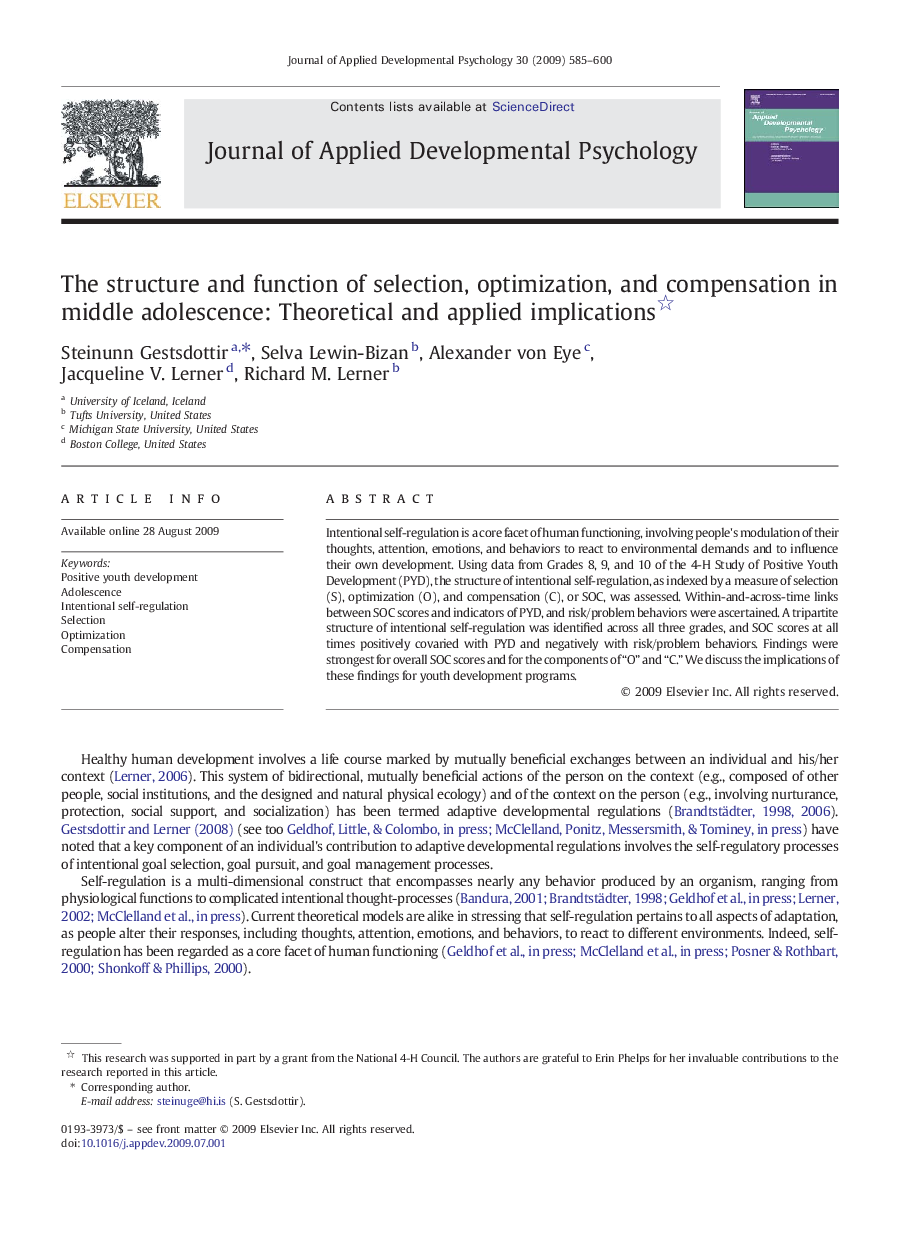| Article ID | Journal | Published Year | Pages | File Type |
|---|---|---|---|---|
| 359797 | Journal of Applied Developmental Psychology | 2009 | 16 Pages |
Intentional self-regulation is a core facet of human functioning, involving people's modulation of their thoughts, attention, emotions, and behaviors to react to environmental demands and to influence their own development. Using data from Grades 8, 9, and 10 of the 4-H Study of Positive Youth Development (PYD), the structure of intentional self-regulation, as indexed by a measure of selection (S), optimization (O), and compensation (C), or SOC, was assessed. Within-and-across-time links between SOC scores and indicators of PYD, and risk/problem behaviors were ascertained. A tripartite structure of intentional self-regulation was identified across all three grades, and SOC scores at all times positively covaried with PYD and negatively with risk/problem behaviors. Findings were strongest for overall SOC scores and for the components of “O” and “C.” We discuss the implications of these findings for youth development programs.
